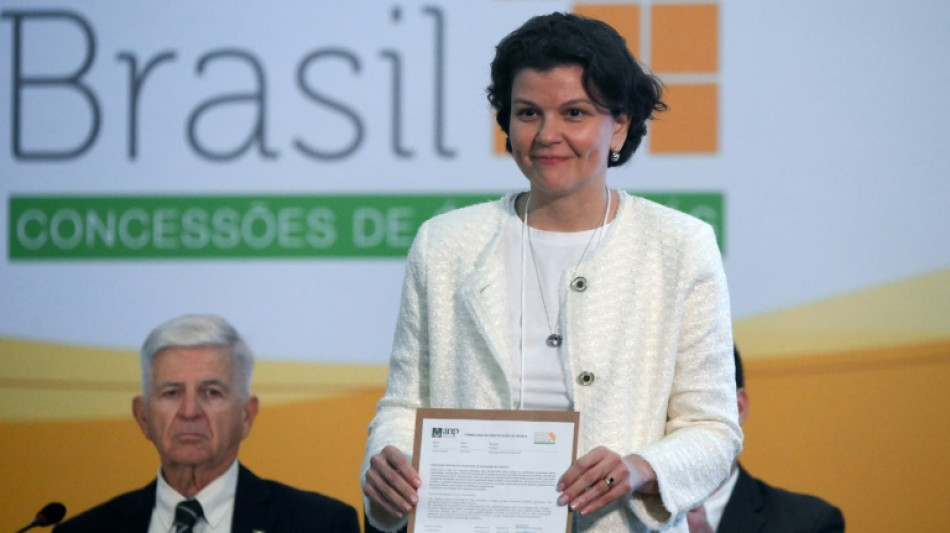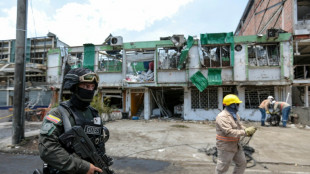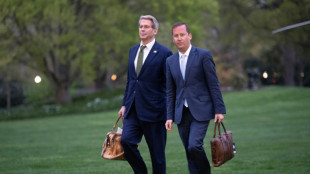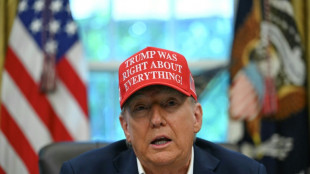
Brazil sells rights to oil blocks near Amazon river mouth

Brazil sold extraction rights to 19 oil and gas blocks near the mouth of the Amazon river Tuesday, at an auction slammed by environmentalists months before the country is to host a UN climate summit.
Two consortiums -- one comprising Brazil's state-owned Petrobras and US giant ExxonMobil, the other US multinational Chevron and China's CNPC -- spent $153 million on exploration and production concessions for 19 blocks on offer in an area considered vulnerable to environmental harm.
They are among 172 blocks, most of them offshore, that went on auction Tuesday as dozens of protesters gathered outside the venue under a banner reading: "Stop the doomsday auctions."
Green groups have expressed particular concern over 47 blocks in the Atlantic, in an area near the mouth of the Amazon River that flows through the world's largest carbon-capturing tropical rainforest.
The first 19 blocks to which rights were sold were part of these 47.
In all, 34 blocks found takers at the auction, bringing in about $180 million for the state.
Investments of more than $260 million are planned for exploration.
- 'Cannot ignore it' -
Already Latin America's biggest oil and gas producer, Brazil is seeking to increase production from 4.68 million to 5.3 million barrels per day by 2030.
At the same time, the country has pledged to reduce its emissions of planet-warming greenhouse gas emissions to 1.2 billion tons of CO2 equivalent (CO2e).
By 2050, it is seeking to reach neutrality -- meaning emissions do not exceed the amount captured, by forests, for example.
Brazil's ClimaInfo research institute had estimated that the 172 blocks placed on auction would emit some 11.1 billion tons of CO2e.
Leftist President Luiz Inacio Lula da Silva, seeking to position himself as a leader in the fight against climate change, supported the auction that will see the successful bidders pay royalties on whatever oil and natural gas they eventually do extract.
"If this wealth exists, we cannot ignore it, as it will help us to make the energy transition and secure funds to preserve our forests," Lula declared in February.
"We must act responsibly. I do not want oil exploration to cause any harm to the environment," he added.
Before they can start exploration, the companies must obtain a drilling license from environment oversight body Ibama -- a process that can take years.
The Climate Action Tracker, which measures governments' actions, has said Brazil "is not on track" to meet its emissions targets and needed to "peak and rapidly decrease emissions" if the world is to succeed in limiting global warming to 1.5 degrees Celsius (2.7 Fahrenheit).
The auction went ahead despite Brazil's Federal Public Ministry, an independent rights-monitoring body set up under the Brazilian constitution, calling for it to be suspended pending "adequate studies" on the potential impact of exploration.
"Brazil is missing an opportunity to be a leader in decarbonization and environmental protection," Suely Araujo, a former president of Ibama and coordinator of the Climate Observatory NGO said ahead of Tuesday's auction.
And the WWF's Brazil branch said the country "already has enough oil reserves to meet its internal demand" while gradually transitioning to a greener energy mix.
"The climate crisis requires bold decisions and public policies focused on the future, not the past," it added.
Brazil will host the UN climate conference called COP30 in November in the Amazonian city of Belem.
A.Clark--SFF

 London
London

 Manchester
Manchester
 Glasgow
Glasgow
 Dublin
Dublin
 Belfast
Belfast
 Washington
Washington
 Denver
Denver
 Atlanta
Atlanta
 Dallas
Dallas
 Houston Texas
Houston Texas
 New Orleans
New Orleans
 El Paso
El Paso
 Phoenix
Phoenix
 Los Angeles
Los Angeles



